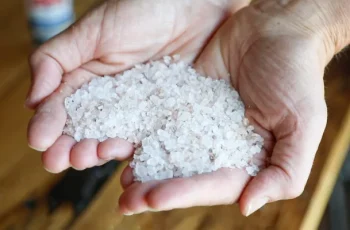Access to clean and safe water is paramount, especially for households relying on private wells. Unlike municipal water, which undergoes rigorous treatment, well water draws directly from underground sources, potentially harboring a multitude of contaminants. This necessitates a thorough understanding of well water risks, filtration options, and the benefits of a whole house filtration system.

The Perils of Untreated Well Water:
Well water is susceptible to both naturally occurring and anthropogenic contaminants. Unlike city water, which is routinely monitored and treated, well owners bear the responsibility for testing and treating their water. Common impurities include:
Sediment and Dirt: Soil particles, sand, and rust, introduced by erosion, construction, or well maintenance, can cloud water and damage plumbing.
Bacteria and Microorganisms: Pathogens like E. coli, coliform bacteria, and Giardia, infiltrating through groundwater, septic leaks, or runoff, pose serious health risks.
Heavy Metals: Arsenic, lead, mercury, and iron, naturally present or introduced by industrial pollution, can accumulate in the body, leading to chronic health issues.
Hard Water Minerals: Excessive calcium and magnesium cause scale buildup, reducing appliance efficiency and lifespan.
Pesticides and Fertilizers: Agricultural runoff introduces nitrates, phosphates, and herbicides, contaminating groundwater and impacting water safety.
Volatile Organic Compounds (VOCs): Industrial solvents and fuel additives, leaking from storage tanks or improperly disposed of, contaminate water with carcinogenic compounds.
These contaminants affect water safety, taste, and household infrastructure, making a whole house filtration system a vital investment.
The Advantages of Whole House Filtration:
Comprehensive Clean Water: A whole house system purifies water at every tap, shower, and appliance, ensuring consistent quality throughout the home.
Reduced Health Risks: Eliminating bacteria, heavy metals, and chemicals minimizes the risk of waterborne illnesses and long-term health problems.
Plumbing and Appliance Protection: Preventing scale, corrosion, and clogging extends the lifespan of pipes, water heaters, dishwashers, and washing machines.
Enhanced Water Quality: Removing contaminants improves taste and odor, making drinking and cooking more enjoyable.
Long-Term Cost Savings: Reduced appliance damage and decreased reliance on bottled water offset the initial investment.
Types of Whole House Filtration Systems:
Sediment Filtration: Captures large particles like sand, dirt, and rust, protecting downstream filters and plumbing.
Carbon-Based Filtration: Removes chlorine, pesticides, herbicides, and VOCs, improving taste and odor.
Reverse Osmosis (RO) Filtration: Utilizes a semipermeable membrane to remove dissolved solids, heavy metals, and bacteria, producing highly purified water but generating wastewater.
Ultraviolet (UV) Purification: Neutralizes bacteria, viruses, and pathogens using UV light, a chemical-free method ideal for microbial contamination.
Water Softeners: Replace calcium and magnesium with sodium or potassium ions, preventing scale buildup and improving soap efficiency.
Key Considerations Before Installation:
Well Water Testing: A comprehensive water test identifies contaminants, guiding filtration system selection.
Maintenance Requirements: Each system requires specific maintenance, including filter replacement and UV bulb changes.
System Capacity and Flow Rate: Choosing a system that matches household water consumption prevents pressure issues.
Installation Costs and Space: Professional installation ensures proper setup, and adequate space is needed for the system.
When a Whole House System Is Essential:
When water tests reveal bacteria, high nitrate levels, or chemical contamination.
When water exhibits persistent bad taste, foul odor, or stains fixtures and laundry.
For households with vulnerable individuals, such as young children or those with compromised immune systems.

Conclusion:
Investing in a whole house water filtration system for well water is a prudent decision, safeguarding health, protecting appliances, and enhancing overall quality of life. By understanding the risks, exploring filtration options, and ensuring proper maintenance, homeowners can enjoy clean, safe, and high-quality water for years to come.



